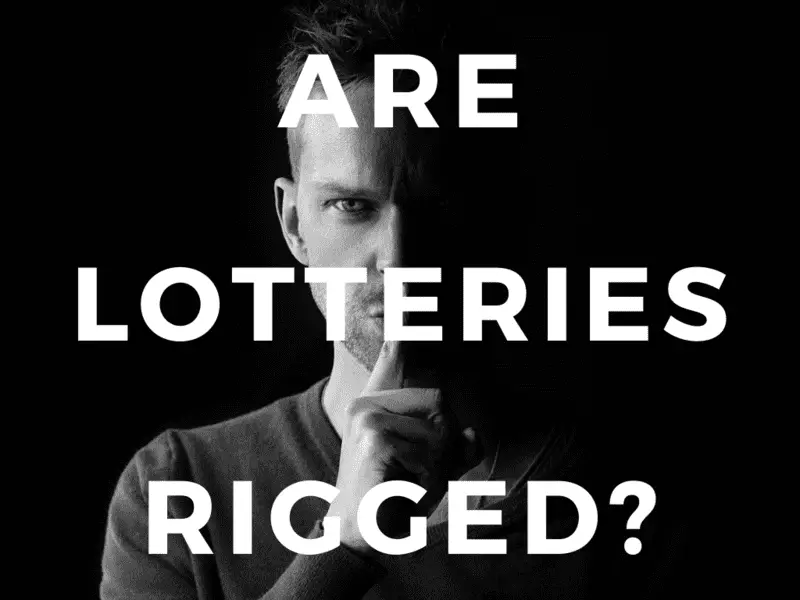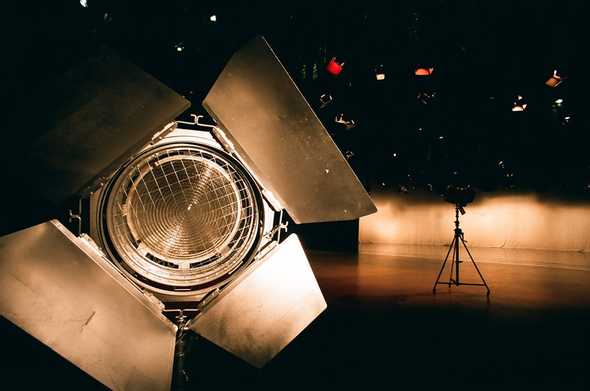Are Lotteries Rigged?
Lotteries are advertised as easy ways to win loads of money. However, the odds are always stacked against the player, with especially low odds of winning the big, hundreds of millions jackpot.
So, are lotteries rigged? No, lotteries are not rigged. While your chances of winning are low, there should be no foul play by either the lottery corporation or the government. Additionally, the odds of someone winning a prize are clearly noted in the rules of any lottery game.
Read on to learn about a time when the lottery was rigged (and the culprit was caught), how lottery numbers are chosen, and the security measures in place to ensure a fair and random drawing. This article will also outline the chances of winning a major lottery, as well as a short overview of scratch lottery tickets and how a couple of people have tried to decipher patterns in those. Finally, a few fake conspiracy theories about lotteries are thrown in, just for fun.
How Are Lottery Numbers Chosen?
Lottery numbers are chosen by random-number generators.
For example, the Multi-State Lottery Corporation uses a Geiger Counter, used to measure radiation in the air. The reading is then translated into code, which is split into two-digit numbers and put as the winning numbers.
For Powerball, as well as a few other large number-based lotteries, the picker uses a physical system involving plastic balls. The balls, labeled with black ink with numbers 1-69, are in one container, and red balls numbered 1-26 are in another. Air is pumped into the containers, which mixes up the balls. Then a platform rises from the bottom, holding one ball from the black-labeled container.
This is repeated five times, and then a red ball is drawn in the same way.
This system of drawing balls is assumed to be random unless you count the small probability that the different ink patterns denoting numbers create heavier and lighter balls. However, most agree that the difference in weight would be statistically unimportant, and the resulting ticket numbers seem to not be affected in practice.
Another question arises with the “Quick Pick” system, in which players allow a machine to spit out a combination of numbers for them to play, rather than choosing their own. Since a machine does this, it must be programmed by humans. The ability for people to hack code is there, and while possible, would be illegal. Just under 70% of tickets sold are Quick Pick Tickets.
Additionally, with the millions of tickets sold by Quick Pick, it seems to be just as likely to win as with people who pick their own number combinations.
Can Lotteries Be Rigged?
People in power, who have access to the coding and machines that pick winning numbers can, in fact, rig a lottery. One of the most famous cases was Eddie Tipton, who rigged the Hot Lotto.
According to a New York Times article on the subject, Tipton worked at the cooperation that organized the Hot Lotto, which was started in 2002, and available in 14 states and Washington DC.
Tipton, who was described by coworkers and friends as an all-around nice guy, was able to rig a few lotteries in order to win jackpots for either himself or his friends and family. He had access to many of the departments in the cooperation, from security to coding. By writing a small code that narrowed the possible combination of numbers to a few hundred, he was able to drastically lower the odds for those who knew the possible combinations.
By doing this, he won millions of dollars illegally. He either bought the tickets himself (only smaller prizes), and passed them off to loved ones, or simply gave the combinations to friends or family to try themselves.
He was discovered when his best friend went through incredible lengths in order to try and claim a $16.5 million dollar jackpot anonymously, which is illegal in Iowa. Since his friend knew that he won a rigged lottery, he was considering withdrawing his win in order to stay unknown, which caused alarm bells to go off in local white-collar crime investigators’ offices. Who would trade anonymity for such a huge amount of money?
Tipton was eventually caught, made to confess, and sentenced to ten years in a low-security prison. While originally Tipton was only caught for one illegal ticket, it was quickly found that a pattern of his friends and family winning was long-winding. He never truly saw his actions as blatantly illegal, only as a nice thing to do for struggling friends and family.
While this story is horrifying for many hopeful lottery players, rest assured that it’s a rare case. People who attempt to rig lotteries get caught quickly, as multiple winners from one family or groups of people trigger investigations. Trying to fool an organization with many security systems is often a lost cause for the people who try.
So while it is possible for someone to rig a lottery, it’s very unlikely, and definitely not common practice. Numbers drawn for winning tickets of big lotteries should certainly be random, and most often, they are.
What Are the Chances of Winning?
National Lotteries
The reason why one might think lotteries are rigged might have something to do with the incredibly low odds of winning the lottery. Unlike cards at a casino or an electronic slot machine, lottery games aren’t won by skill or pre-determined by a casino. Instead, it’s true that each lottery ticket has an equal chance of being the winning one as the next (unless, of course, the game is illegally tampered with).
Powerball: The odds of winning the multi-million dollar jackpot is 1 in 292,000,000. Statistically, that’s almost zero.
Obviously, your chances do increase the more tickets you purchase, but that also means more money out of your pocket without a promise to earn it back. However, the chances of winning any prize are 1 in 24.8, meaning having at least one number match. The payouts of prizes (not the jackpot) go from $4 to $1 million for five out of five numbers plus a matching “Powerball” number, which is just a sixth number with fewer options to choose from (1-26).
Mega Millions: To win Mega Millions would be to beat the odds even more than if you won Powerball. The chances of winning lie around 1 in 302,500,000- meaning you have a better chance of getting struck by lightning or even having quadruplets than walking away with hundreds of millions from Mega Millions.
In the case of Mega Millions, you have to match five numbers plus the “Mega” number, but the range of numbers is 1-70, while Powerball’s range is 1-69. Mega Millions does offer more prizes, but the payout starts at just $2 (the price of one ticket) and goes up to one million (not counting the jackpot).
So while the national lottery games may feel “rigged,” due to the low chances of winning money (not even the jackpot, just any prize), it is, in fact, random. Just know your odds before going in, and you may end up less dissatisfied with the inevitable losses.
Scratch-Off Tickets
The most instantly gratifying (or devastating, depending on if you win or lose) types of lotteries are in the form of scratch-off tickets. Rather than picking numbers and waiting for them to be drawn, you can simply pay a buck for a paper card. To play, you take a coin and scratch off a layer of paint to reveal images underneath. If some match, you win. The more that match, the more you win.
This type of lottery is less random because companies who make scratch-offs need to ensure there is only a limited number of winners in order for them to make a profit. So tickets are designed to be winners or not be winners, and it’s only luck that determines which one it is.
However, some claim to have “hacked” the code of scratch-offs, simply by collecting enough data on which cards win and lose. In an Atlantic article, the author describes being a store cashier, who would watch when enough people’s cards were losers in a row, and take the chance to buy the next few. He determined about a 10% success rate and was able to catch the winner in the pack a couple of times.
The typical “winning” card gives the buyer a few bucks- certainly not the millions that can be won by a national number-drawing lottery, but not bad.
There are, however, more statistical ways of finding scratch-off winners. A statistician found that certain patterns could be deduced on tic-tac-toe style tickets, and found a high success rate. Instead of getting rich, however, he reported his findings to the company that made the tickets. To convince the company that he knew what he was talking about, he correctly predicted 19/20 unscratched tickets and sent them by mail.
The same man was able to crack a few other number-based scratch lottery games, reporting his findings to the company each time. As it turns out, many such algorithms are able to be “solved,” meaning that the manufacturers have to stay one step ahead of anyone who may be trying to “rig” a game in their favor.
Lottery Conspiracy Theories
Despite assurances from big lotteries that all is fair and legitimate when running national games like Powerball and Mega Millions, theories about where the money really goes and who organizes the lottery run amuck on conspiracy websites. Though lotteries are not rigged, plenty of people continue to believe in illegitimate forces behind the system.
Here are a couple of the most common, and some of the most outrageous:
The Powerball Lottery is run by the Mafia: The site entitled “The Illuminati Conspiracy Blog” claims that Powerball is run by the “Mob,” who is making billions off of common people’s investments in the lottery. While they don’t have much (read: any) proof behind this theory, the bluster and ragged logic can be entertaining to follow.
The government is purposefully jacking up the jackpot by not declaring a winner: With huge jackpots for lotteries, it is true that governments can get a bigger cut by taxing the lot. However, there’s no legitimate way they can ensure that the numbers they pick won’t match anyone’s ticket, as many people fill out the numbers themselves.
Nevertheless, the theory that the government has a heavy hand in delaying winners of lotteries is one of the most popular Powerball conspiracy theories on the internet, especially if you search for the two terms “Powerball” and “Conspiracy.”
The winners are actors: Another popular idea, tied to the “governments are fraudulent” idea, is that winners of Powerball and Mega Millions are actors, paid by the government to keep a fake lottery going. Those who push this theory believe that ticket money goes directly to the government, and anyone who “wins” is only acting.
However, this myth runs into a problem when you realize that the numbers being called do, in fact, have to eventually end up being written on someone’s ticket. Additionally, the government does still earn profit from lotteries, even with a real winner taking home a cash prize.
Location conspiracy: Another Twitter conspiracy favorite is that winning tickets are only sold in certain parts of the country- with Indiana, Missouri, and Minnesota as the top states for Powerball winners. However, the variance of buyers in each location can also determine the highest win rate. The more tickets bought, the better the chance of walking away with the jackpot.
So, are the theories true? The answer is pretty much, no. There are security measures put in place during high-stake lottery drawings, with multiple witnesses and typically even an enforcement officer watching over the proceedings. Additionally, any glimmer of foul play would be thoroughly investigated, just as it was in the Hotto Lotto scandal.
Still not convinced? There’s an easy solution: just don’t play! The only way you would be getting scammed is if you willingly paid for a ticket.
Lottery Security
By State
With billions of dollars circulating in the lottery systems across the United States, there has to be a level of security to both ensure that no foul play is going on, as well as to keep players safe. How does this happen?
To start, most states have a security system for their specific lottery system. As outlined in the division of security of the Florida Lottery, these departments investigate claims of fraud, field complaints, and prepare and take preventative measures in order to stay one step ahead of any criminal activities.
They also typically write a list of guidelines so players can keep themselves and their money safe.
They advise never to answer a call or email offering to sell someone a winning ticket or even to buy a ticket from someone other than an authorized vendor. Additionally, they warn that anyone promising a prize cannot be trusted, as there is no guarantee in the official lottery that you will win anything. Lastly, they mention that a lottery official will never call someone, so to avoid those scams.
The Drawings
To make sure all is fair and secure, the Mega Millions website details the carefully-thought-out security measures that go into each drawing.
- With multiple sets of balls and machines, a random pair is chosen each time.
- Outside consultants make sure that the chosen machine is working correctly.
- The chosen machine is put through tests before the drawing to make sure it is truly random.
- After the drawing, more tests are conducted to double-check the validity of the machine’s results.
- Auditors from an independent firm help with these tests, as well as lottery officials.
- The entire testing and drawing process is videoed, as proof.
The officials claim that the process takes about three hours, even while the actual choosing of the balls only takes about a minute. All of the hubbubs are specifically to preserve the integrity of the game.
Powerball has a very similar method, and any large lottery corporation must carefully document and confirm that their random methods are secure and that no foul play is at large.
Conclusion
Lotteries are commonplace throughout the United States, and millions of people buy tickets each year. Because of the abundance of players, the odds of winning a prize, especially the jackpot, are very low- less than one in a million, typically.
However, the lottery is not rigged or set up in any way. One ticket has just as good a chance of winning as another ticket. While there are some conspiracy theories out there about who might be controlling lotteries behind the scenes, rest assured that all these myths are false. (There are some strategies though, that can increase your odds.)
Lastly, there have been a couple of notorious instances of lottery-rigging- however, these people are typically caught quickly. Lotteries have plenty of security systems, from investigators of crime to careful tests to ensure randomness, in order to maintain safety.








